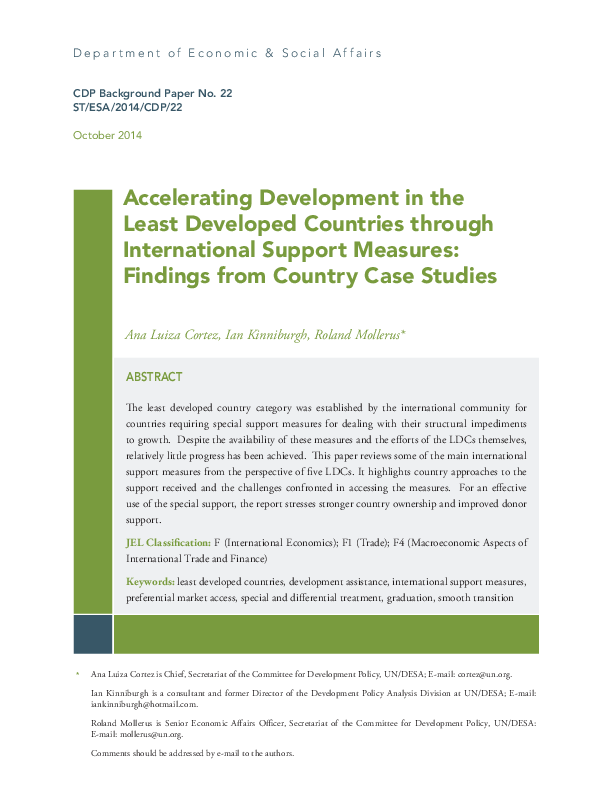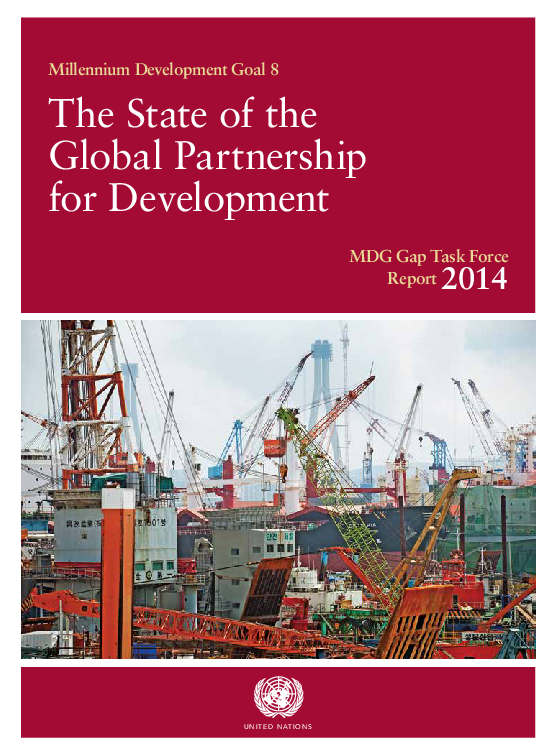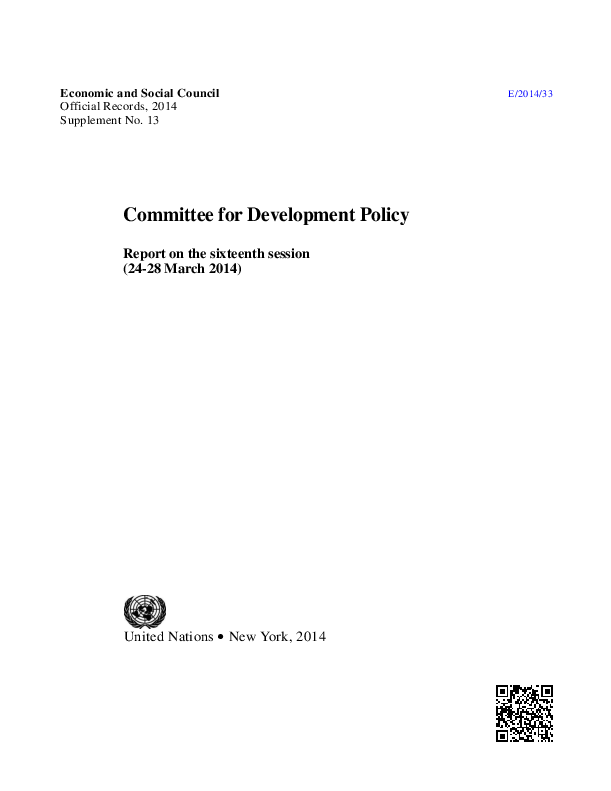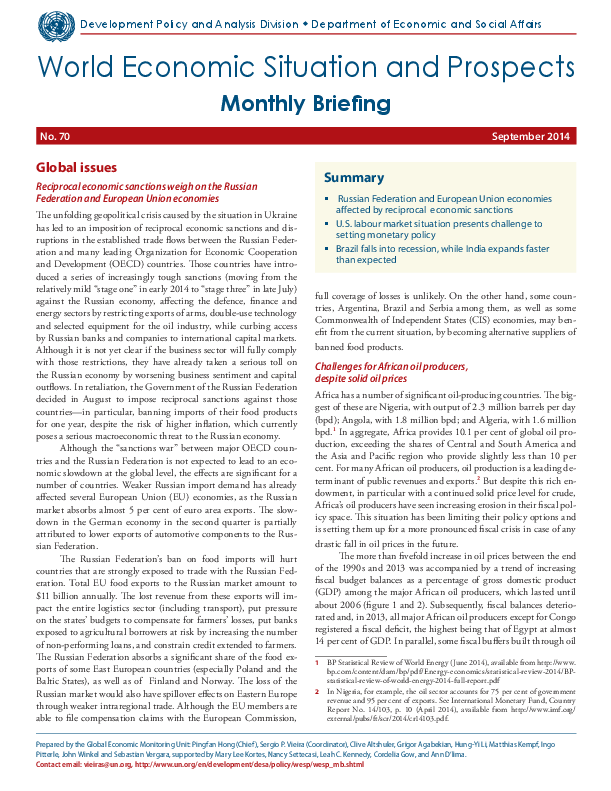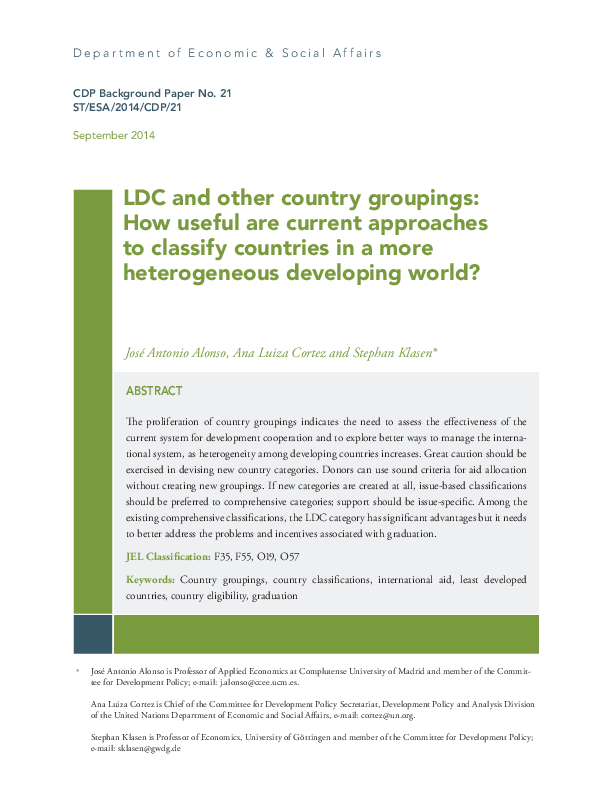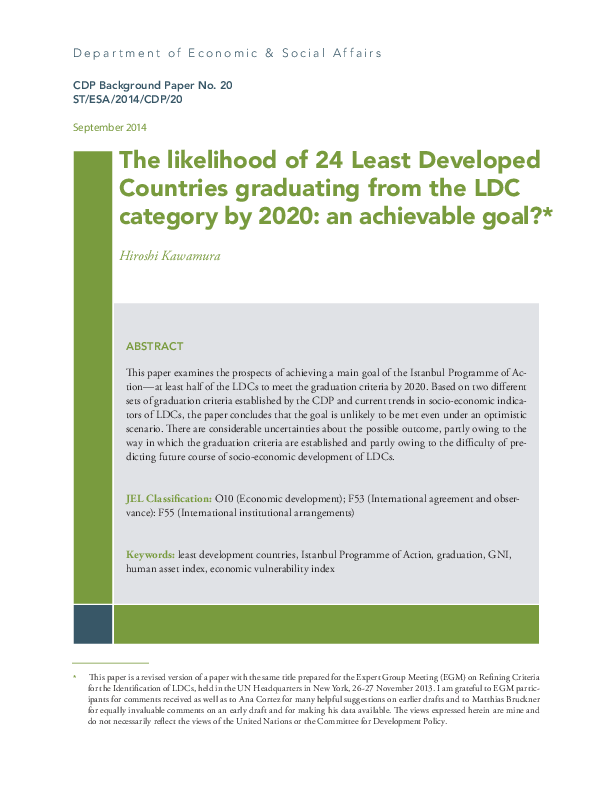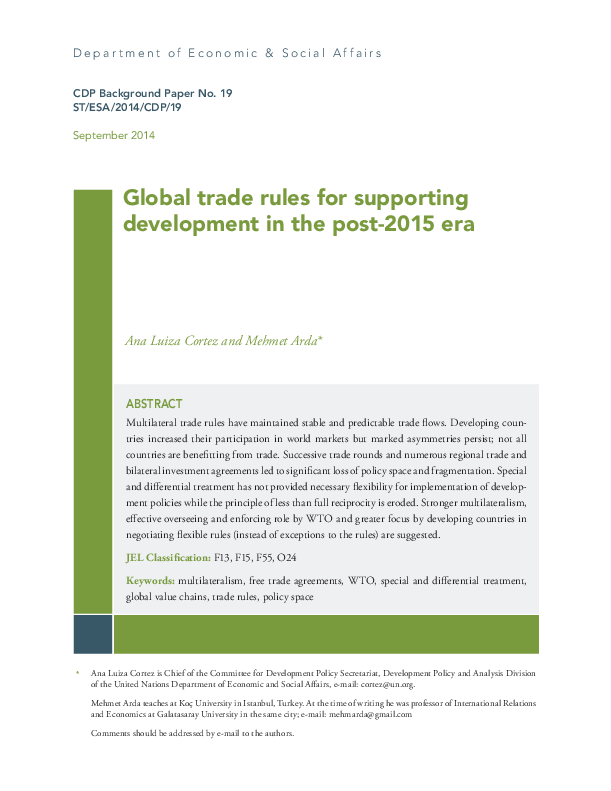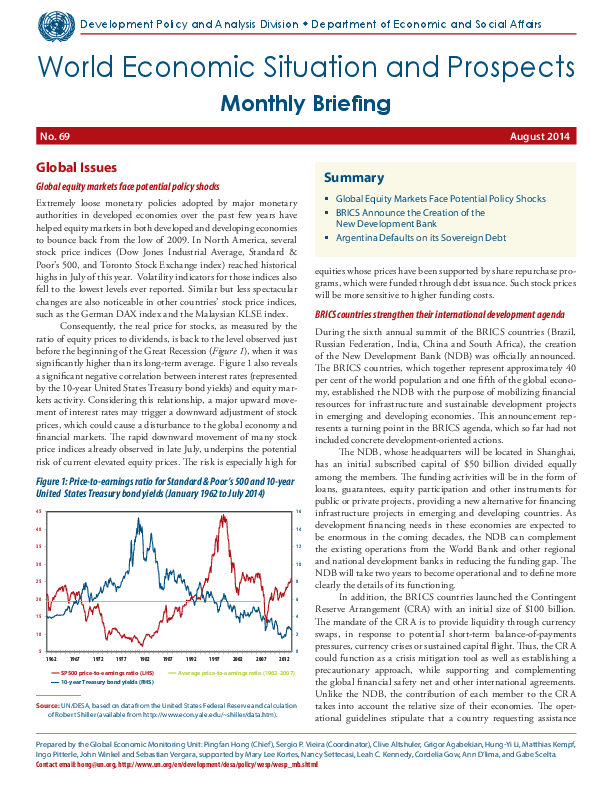Publications
Displaying 571 - 580 of 1083
Report on the sixteenth session of the Committee for Development Policy, 24-28 March, 2014 (E/2014/33, Supplement No. 13)
U.S. labour market situation presents challenge to setting monetary policy
Brazil falls into recession, while India expands faster than expected
Summary: Global equity markets face potential policy shocks
?BRICS announce the creation of the?New Development Bank
?Argentina defaults on its sovereign debt Extr
 Welcome to the United Nations
Welcome to the United Nations
